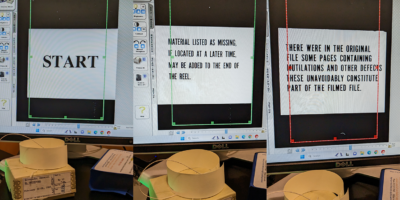By Elizabeth Decker, Sarah Litvin, Mei Ling Chua and Avra Spector
The TLC’s inaugural Open Focused Inquiry Series (OFIS) was created in response to a curiosity about how we communicate in the classroom. During March 2019, four TLC staff members who developed this OFIS met each Tuesday with three graduate student instructors to study this topic together. While communication is essential to teaching and learning in the classroom, we as instructors rarely investigate it as a set of intentional practices. When the classroom is conceived as a social, relational, and political space, we can see that communication exists across multiple registers, both verbal and non-verbal. Talking and listening are not neutral acts: the classroom has potential as a site of validation, empowerment, and community. In this kind of classroom, vulnerability, taking risks, and participating are crucial components of teaching and learning. Inspired by bell hook’s sense of praxis as “action and reflection upon the world to change it,” (Teaching to Transgress, 14) we wanted to make space to examine the potential applications of communication theory and scholarship on our own approaches to and practices in the classroom .
This is the first in a series of four blog posts that reflect on the experience of participating in this month-long OFIS. The next three posts in this series feature the thoughtful lessons that our full-series participants, Maddy LaFuse, Jason Nielsen, and Kyueun Kim, piloted as part of Session 4 described below. These posts will share activities and ideas for how our communication practices might encourage students to embrace their own powers as learners, interrogators, and producers of knowledge.
Week 1: Define
In week one, we began to develop a set of questions (and topics of inquiry) about intentional communication practices by both defining and “exploding” four key terms: Talking, Listening, Questioning, and Responding. We sought to make the space to both hone in on how we understood those terms, while also allowing ourselves to expand their meaning and impact in broader ways. Our collective thinking led us to a set of questions and ideas that we articulated in a collaborative Google document where we wrote about each term for a few minutes. We then read through the work, and, in the doc, continued our discussion by responding. We then categorized that work into three topics of inquiry: The myths of community and hierarchy in the classroom; Strategies for cultivating and practicing intentional communication; and Processes of communication, communication as process.
-
- “Exploding a Term” Exercise
- Reading for Discussion: bell hooks’ Teaching to Transgress
Week 2: Explore
To start our conversation in week two, we asked participants to write down a quotation from the reading or from the document we’d made as a group in the previous session. We then passed these quotes around the table for each participant to respond to it. Avra modeled different ways to respond to a quote including emojis and hashtags in addition to the more traditional modes such as close reading, questions, comments, etc. We then moved to small groups organized around our topics of inquiry and approached the topic through the readings, our own questions, and our teaching experiences.
Week 3: Develop
In week three, we re-centered our conversation on our own classrooms by reflecting on a communication dynamic we observed over the past week. After sharing with a partner, we considered how we might have been more intentional in our communication, and to what effect. We then set to work envisioning a workshop that would share some of the key takeaways from our discussions with a broader public and also help us develop specific plans to integrate intentional communication into our teaching practices moving forward.
-
- Worksheet on meta-observation
- Peer review of our worksheet
Week 4: Share and Reflect
In week four, our three OFIS full-session participants piloted a half-hour activity that they had designed to teach as part of an upcoming class in their own classroom, and attendees participated as if they were students in the class. After each pilot, the group discussed how this activity grew out of new ideas of intentional talking, questioning, listening, responding we developed through the OFIS. To create room for reflection and synthesis as the busy program progressed, we posted our three topics of inquiry on poster paper on the walls and encouraged participants to jot down any thoughts, in relation to these topics, that each activity prompted.
—
The process-based, open-ended approach we piloted through the OFIS inspired new ways to perform the scholarship of teaching and learning. The frame of the OFIS made a space for the multi-directional process of thinking and doing and experimenting together, to engage with different people, materials, and readings as a part of how we examine ideas and our own roles as instructors and facilitators in learning spaces. Its flexible, dynamic format sustained a conversation that was simultaneously focused yet infused with fresh perspectives, bringing together the best aspects of two other types of programming–working with a consistent group–like we do in focused-inquiry groups, and with new drop-in participants–like we do in workshops. The challenge of needing to create activities that would both engage returning participants as well as newcomers proved to be a fruitful constraint for us, Conceiving of knowledge as a dynamic and an ever-evolving process, and making the space for that process to unfold proved to be a useful practice for each of us. By placing trust in the process and in the collaborative design and participation model, we allowed for our thinking and reflecting to grow in ways that troubled, enriched, complicated, and ultimately improved all of our thinking about communication in the classroom.
This Fall, the TLC hopes to create similar opportunities for students to pilot new classroom activities, as well as to continue to develop the OFIS model. If you’re interested in participating, please reach out to the TLC tlc at gc.cuny.edu.










Leave a Reply